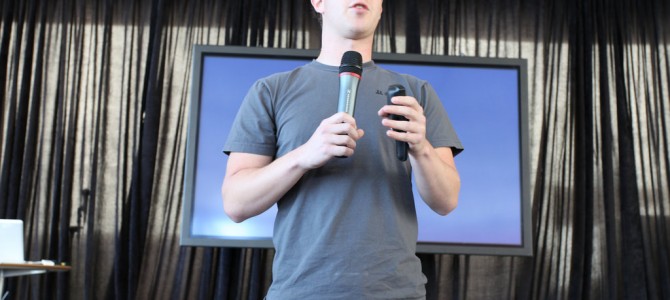
A report on the inner workings of Facebook’s “Trending Topics” headlines exposes how Facebook contractors routinely manipulated the news feed to exclude topics and news sources of interest to people on the right. Here’s how a whistleblower put it:
I’d come on shift and I’d discover that CPAC or Mitt Romney or Glenn Beck or popular conservative topics wouldn’t be trending because either the curator didn’t recognize the news topic or it was like they had a bias against Ted Cruz.
The giveaway, really, is that the people who manage Trending Topics call themselves “news curators.” Whenever you see the word “curator” or “curate” outside of an actual museum, it means paternalistically chosen based on some hipster recent college grad’s notion of what’s good for you.
Facebook is a private company and has a right to do what it wants with its news feed. But this is still big news, for three reasons.
(1) Facebook Lied
First, Facebook led us to believe that functions like Trending Topics are based on what its users are choosing to talk about, not just the opinions of some nameless Facebook flunkie. It’s all supposed to be done by the impersonal mathematics of algorithms. (If today’s Silicon Valley had a motto, it would be “In Algorithms We Trust.”) But it looks like that’s a lie.
Here’s the whistleblower again: “We were doing it subjectively. It just depends on who the curator is and what time of day it is.” They “inject” some topics on orders from above and keep other topics and sources out. That leads us to the second reason this is a big story.
(2) Facebook Broke the Promise of New Media
As with Twitter, our social media giants are squandering the promise of the new Internet media. Everything that was supposed to be a revolutionary improvement about the media in the new era of the Internet — no gatekeepers, no filters, power to the people! — is being dismantled.
In his attempt at damage control, Facebook CEO Mark Zuckerberg still waxes idealistic about this new media idea.
Facebook stands for giving everyone a voice. We believe the world is better when people from different backgrounds and with different ideas all have the power to share their thoughts and experiences. That’s what makes social media unique. We are one global community where anyone can share anything—from a loving photo of a mother and her baby to intellectual analysis of political events.
But here, according to the exposé, is the actual practice:
Facebook’s news section operates like a traditional newsroom, reflecting the biases of its workers and the institutional imperatives of the corporation. Imposing human editorial values onto the lists of topics an algorithm spits out is by no means a bad thing—but it is in stark contrast to the company’s claims that the trending module simply lists “topics that have recently become popular on Facebook.” These new allegations emerged after Gizmodo last week revealed details about the inner workings of Facebook’s trending news team — a small group of young journalists, primarily educated at Ivy League or private East Coast universities, who curate the “trending” module on the upper-right-hand corner of the site.
So “power to the people” ended up meaning what it usually ends up meaning: power to 20-something Ivy League graduates with trendy leftist views.
The new media overthrew the old media — and it is now busy re-building the gatekeeper role once claimed by The New York Times editorial board, but with less accountability. At least we knew the names of the members of The New York Times editorial board.
There is a certain inexorable logic to this. For all of the swelling talk about algorithms and Big Data and artificial intelligence, covering the news still requires judgment, which means that it requires people who are making those judgments. Consider how easily white nationalists manipulated an “artificial intelligence” chatbot to pay tribute to Adolf Hitler. Without people involved in the decision-making process, a Trending Topics feature could easily spit out obviously fake news stories and a lot of irrelevant junk.
But getting people involved creates its own problems. I’ve worked in just about every facet of the new Internet media, including a lot of what we call “news aggregation,” which is what Trending Topics really is: somebody making judgments about what is legitimate news and interesting to readers, versus what’s noise. It requires some experience and judgment to sort the real stories from the fake, and doing it objectively also requires a scrupulous dedication to linking to articles and people that you hate. That means resisting the temptation to use some snobbish conception of what is a “respectable” news source as an excuse to exclude views you don’t like.
So why does it matter if Facebook is doing a poor job of this? That leads us to the third reason this is big news.
(3) Big, Social Media Companies Dominate New Media
After decades of disruption and experimentation, the basic structure of the new Internet media is finally beginning to take shape, and the big social media companies dominate it. They are emerging as the Internet media’s equivalent of the big television networks or the old national newspaper syndicates.
The context for recent controversies involving Twitter and Facebook is that social media killed the blogs, which were a truly decentralized medium that challenged the old media gatekeepers. William Jacobson runs down the history, which rings true for those of us who lived through it. Ten years ago, if you had interesting things to say about politics or culture, you could make a name for yourself by creating your own blog, posting your thoughts, and getting other bloggers to link to your material or re-post it with an acknowledgement. Today, this happens almost entirely on Twitter and Facebook, as both sites are major sources of traffic for anyone who is seeking either ideological influence or the page views necessary to make a living writing on the Internet.
That’s why you’re going to see a lot of outrage about this from rank-and-file conservative writers. When you’ve become dependent on social media for the clicks that keep the lights on, you become very sensitive to the way the social media companies are playing favorites, suppressing sources they don’t like and favoring those they do.
That’s also why it’s kind of irrelevant for Mark Zuckerberg to try to make nice by having a meeting with people like Glenn Beck and Dana Perino, whose base is traditional broadcasting — radio and television — rather than the Internet.
The broader economic dilemma here is that “content providers,” as we are now called, have traditionally been able to support themselves economically only by attaching themselves to something bigger. The old newspapers, for example, provided reporting and commentary, but made a huge portion of their money from advertising and classified ads. That was where people went to buy or sell a used car, look for a job or a worker, or even look for a date. In their hubris, reporters and opinion columnists — especially the columnists — thought that their content was the real reason people bought the newspapers. They found out otherwise when all the functions in the classified ads went to the Internet — to Craig’s List, eBay, Monster.com, Match.com, Tinder — and hollowed out the real economic heart of the newspaper.
Similarly, social media has become such a huge driver of the new online media because it, too, attaches itself to something bigger: sharing cute cat videos, looking at the photos from Uncle George’s 50th birthday party, gossiping with friends, networking with colleagues, flirting with the opposite sex, and all of the other things that take up the dominant share of activity on these platforms. This is entirely healthy. It’s good that people are more concerned with buying and selling and working, and with love and family and friends, than they are with politics. But to the extent political discussion gets connected to social media corporations oriented around all of those other things, it becomes easy for them to view the political debate as an incidental part of their business and to feel they have the luxury of treating it as a playground for exercising their biases, without being too concerned about whom they alienate.
At the very least, the political aspect of their media empire becomes something they neglect and contract out to smug young Ivy Leaguers who barely notice their political bias because it is so natural to the campus cultures from which they emerge. It’s looking like that is what happened in this case.
Media is a business, and the alternative — having it become a government-run public utility — leads to much worse, much more intractable bias, as anyone who’s ever listened to NPR can attest. So there will always be big corporations that will run their news bureaus with a noticeable slant that emerges from their corporate culture and their judgment about what the market wants. That was true before the Internet supposedly revolutionized the media — and despite all the fevered assurances to the contrary, it’s still true now.
At least in the old days, we knew who ran the news bureaus, and we knew that we were getting the product of their judgment about the news. Not that they didn’t have their own insufferable pretensions and try to pass themselves off as the impersonal voice of the vox populi. They just hadn’t thought yet to claim “algorithms” as their excuse.
Follow Robert on Twitter, or friend him on Facebook, where he will not send you cute cat pictures but may send you Bluegrass covers of Heavy Metal songs.









